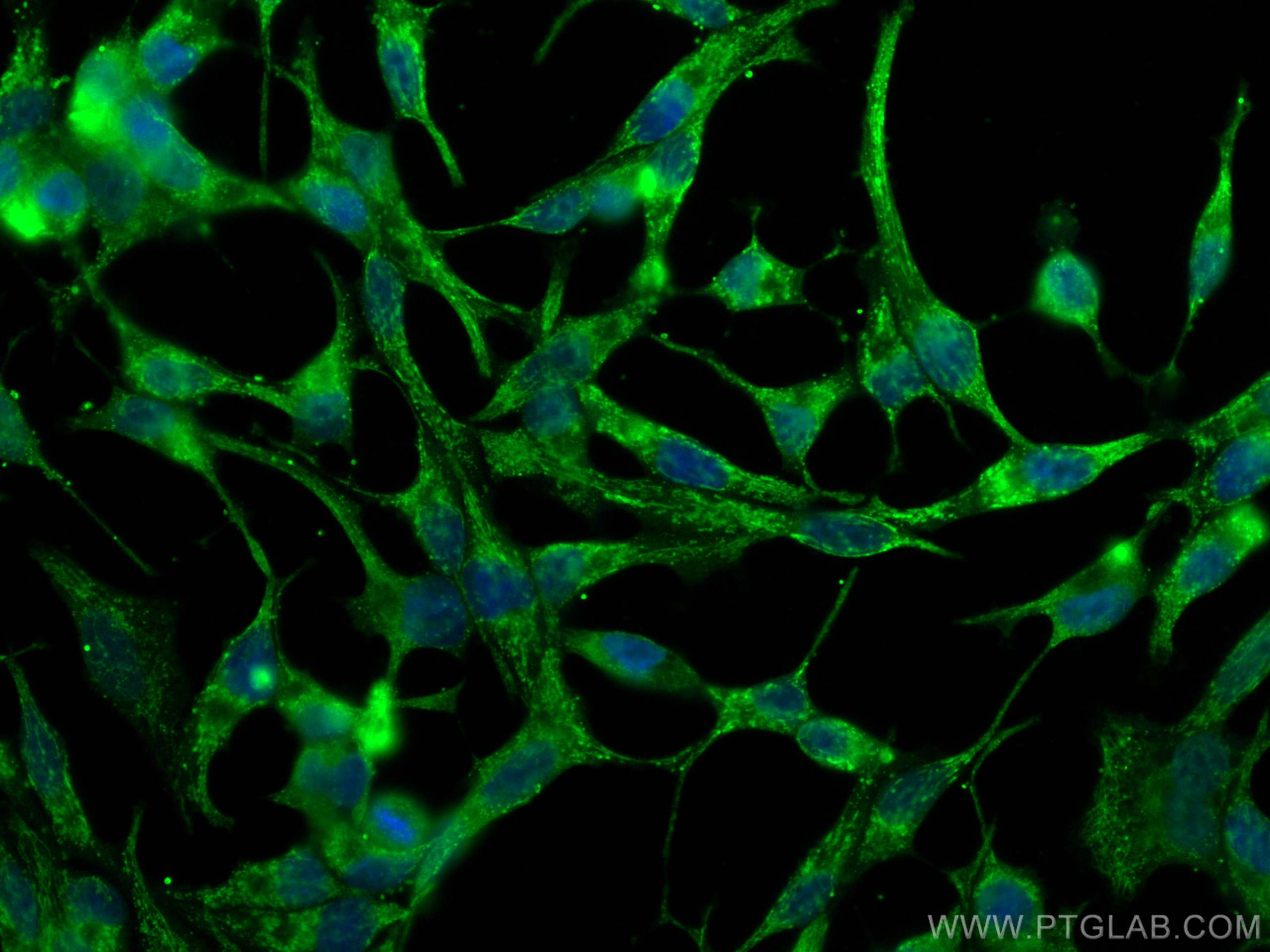Validation Data Gallery
Filter:
Tested Applications
| Positive IF/ICC detected in | LNCaP cells |
Recommended dilution
| Application | Dilution |
|---|---|
| Immunofluorescence (IF)/ICC | IF/ICC : 1:50-1:500 |
| It is recommended that this reagent should be titrated in each testing system to obtain optimal results. | |
| Sample-dependent, Check data in validation data gallery. | |
Product Information
CL488-67607 targets FAAH in IF/ICC applications and shows reactivity with Human, rat, rabbit, pig, mouse samples.
| Tested Reactivity | Human, rat, rabbit, pig, mouse |
| Host / Isotype | Mouse / IgG1 |
| Class | Monoclonal |
| Type | Antibody |
| Immunogen | FAAH fusion protein Ag12720 相同性解析による交差性が予測される生物種 |
| Full Name | fatty acid amide hydrolase |
| Calculated molecular weight | 579 aa, 63 kDa |
| Observed molecular weight | 55-65 kDa |
| GenBank accession number | BC093632 |
| Gene Symbol | FAAH |
| Gene ID (NCBI) | 2166 |
| RRID | AB_3084364 |
| Conjugate | CoraLite® Plus 488 Fluorescent Dye |
| Excitation/Emission maxima wavelengths | 493 nm / 522 nm |
| Form | Liquid |
| Purification Method | Protein G purification |
| UNIPROT ID | O00519 |
| Storage Buffer | PBS with 50% Glycerol, 0.05% Proclin300, 0.5% BSA, pH 7.3. |
| Storage Conditions | Store at -20°C. Avoid exposure to light. Stable for one year after shipment. Aliquoting is unnecessary for -20oC storage. |
Background Information
Fatty acid amide hydrolase (FAAH) is a membrane-bound homodimeric enzyme that in vivo controls content and biological activity of N-arachidonoylethanolamine (AEA) and other relevant bioactive lipids termed endocannabinoids. (PMID: 32041998) This antibody is specific for FAAH protein.
Protocols
| Product Specific Protocols | |
|---|---|
| IF protocol for CL Plus 488 FAAH antibody CL488-67607 | Download protocol |
| Standard Protocols | |
|---|---|
| Click here to view our Standard Protocols |
